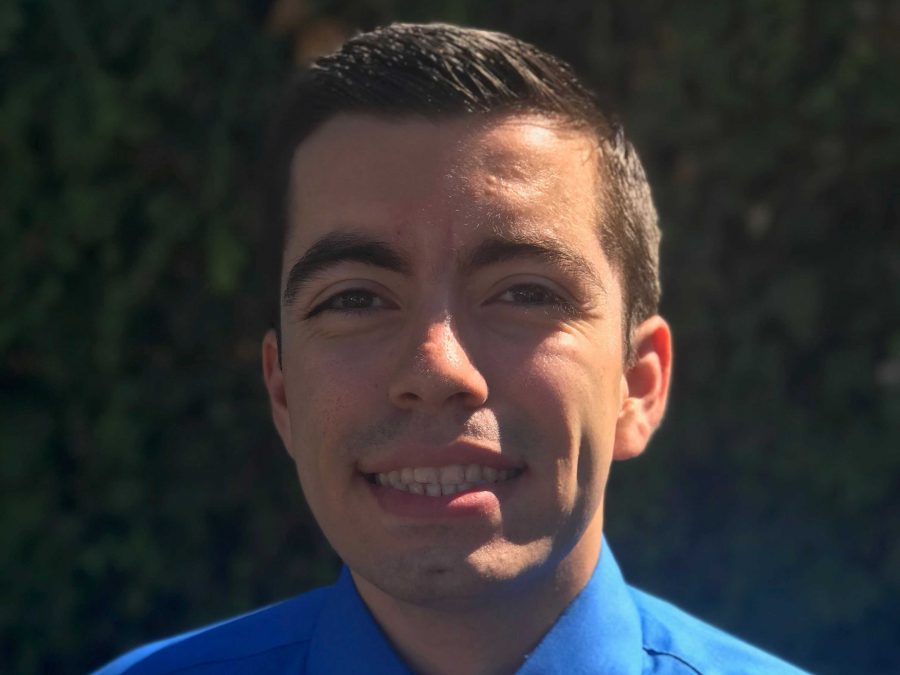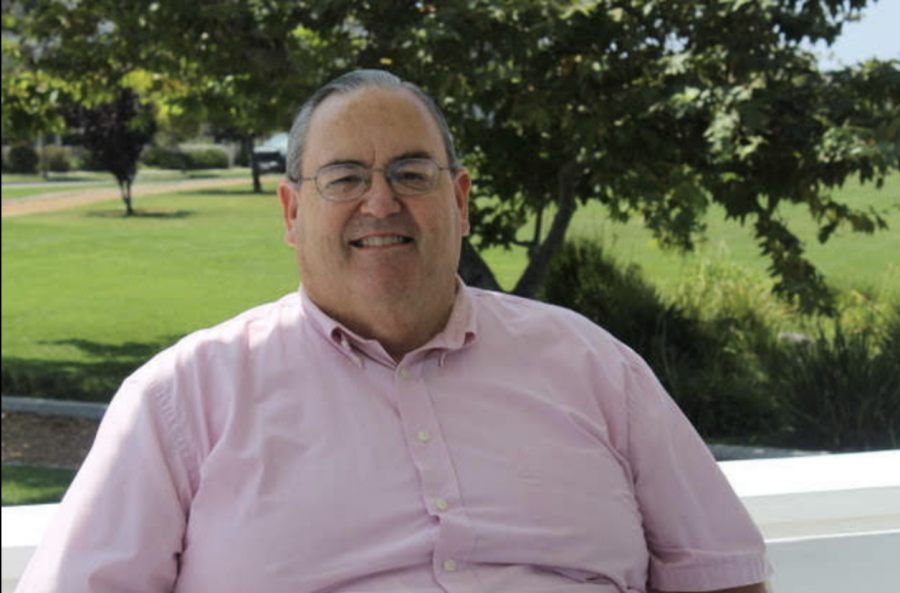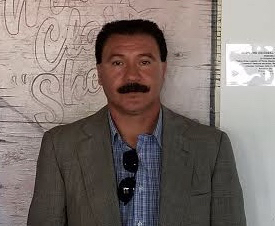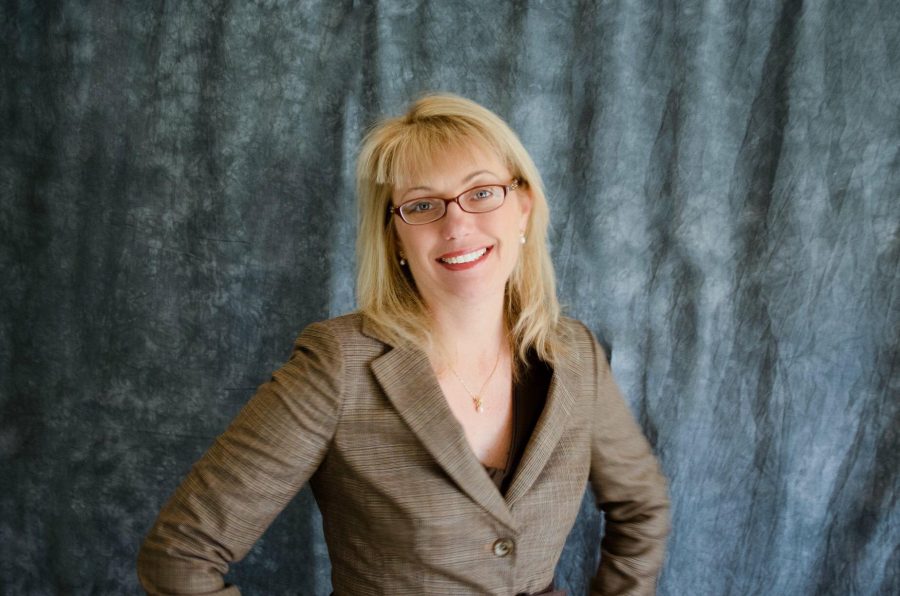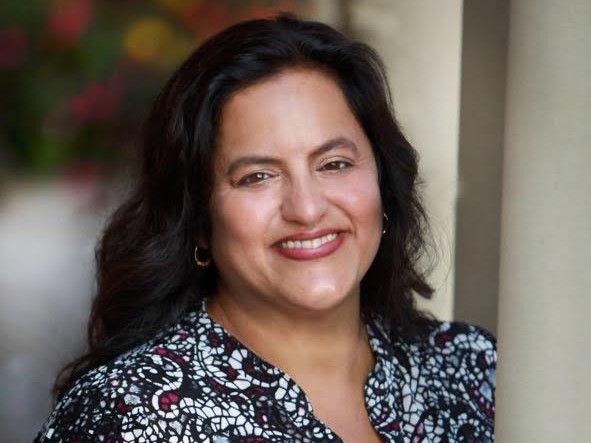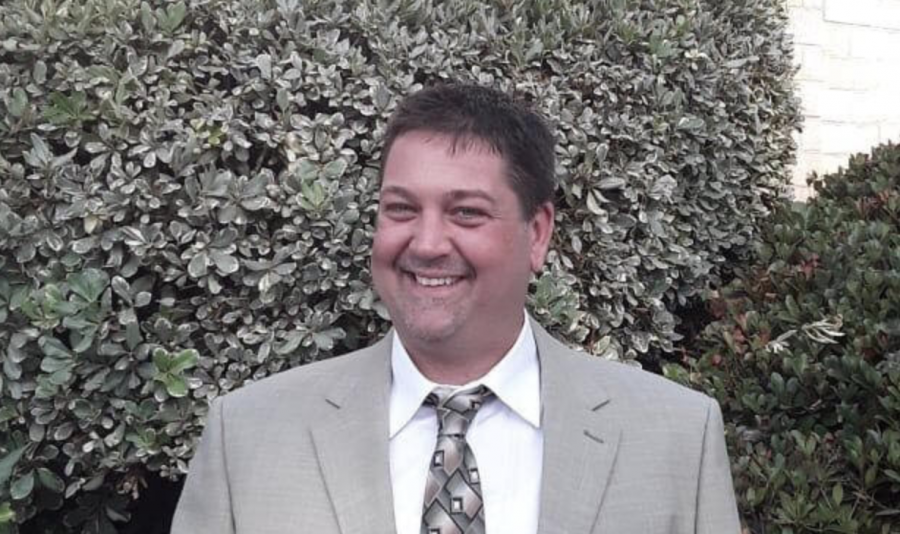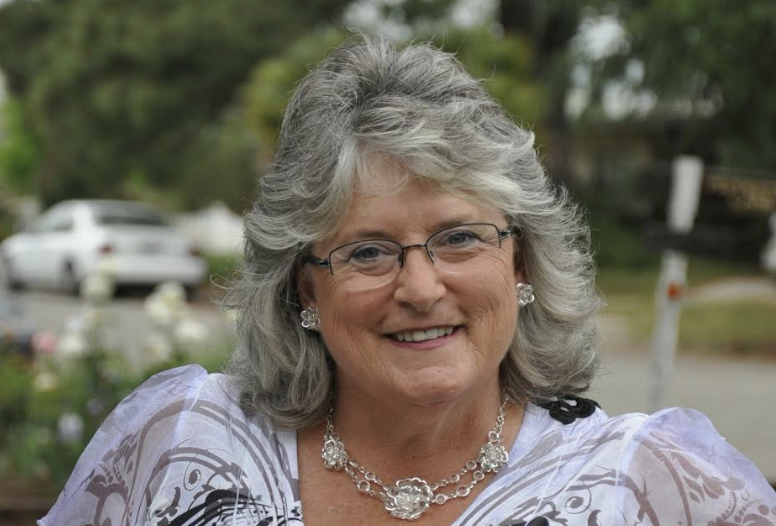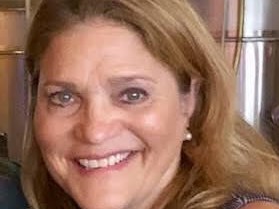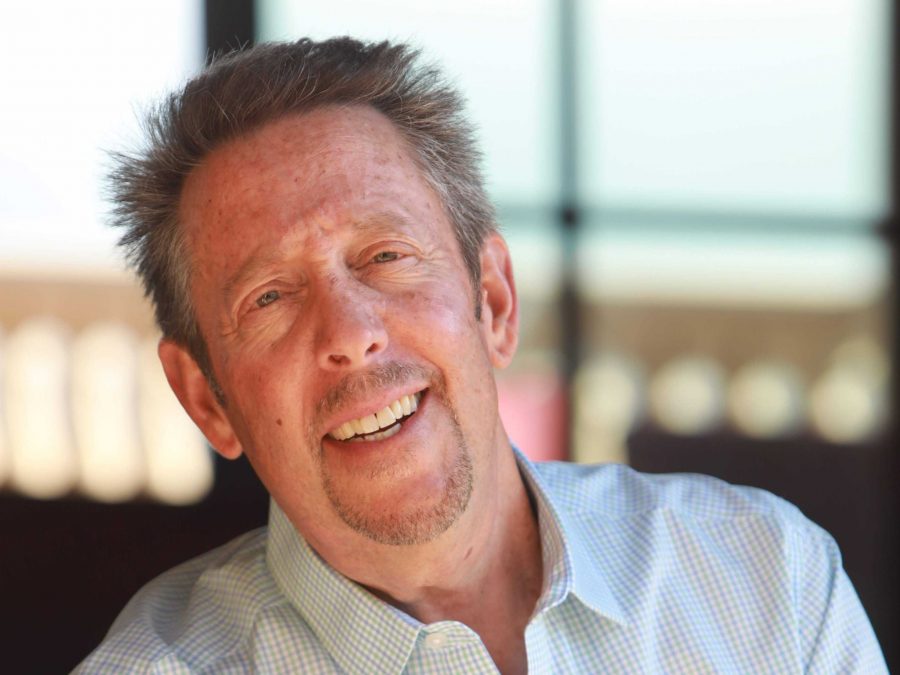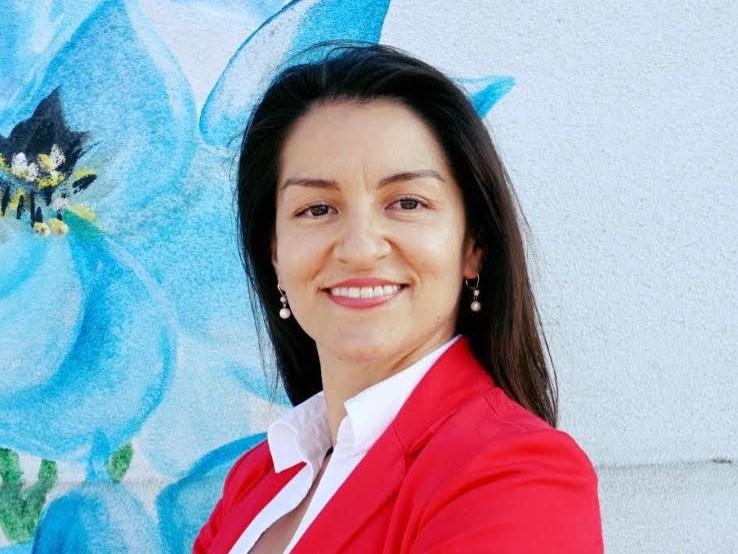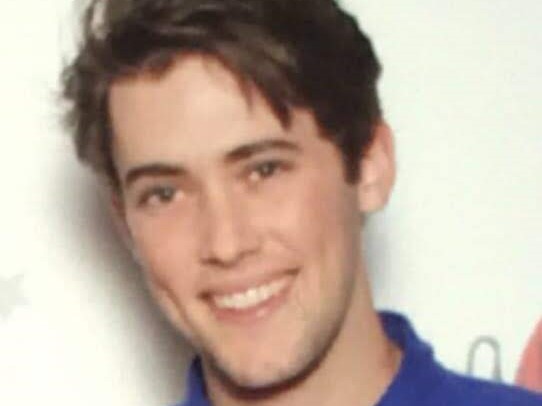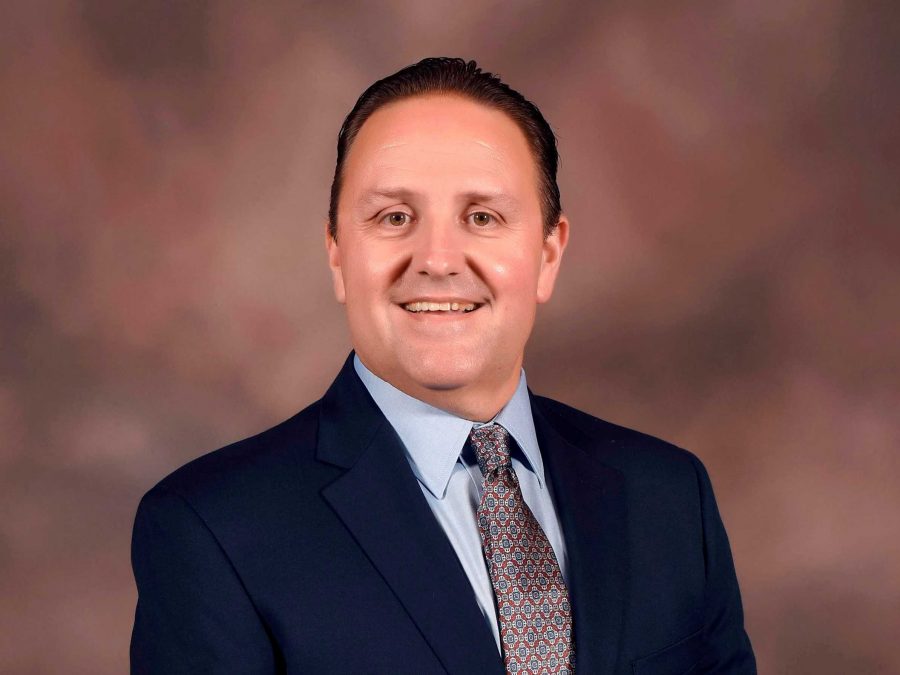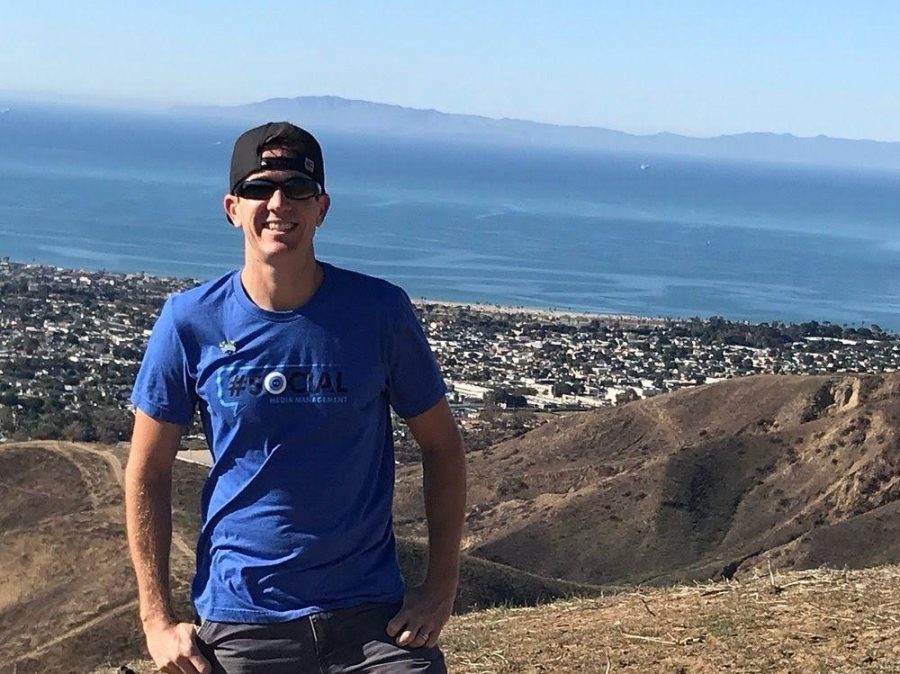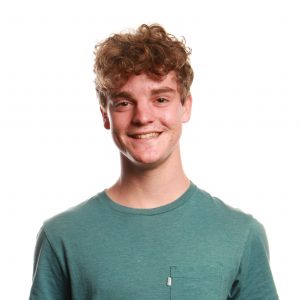INTERVIEWER: Can you tell me about your background as a Venturan?
MARCO CUEVAS: Yeah, so I’ve lived in Ventura my whole life, all 20 years, same house, same street over on the west side. I’ve gone to school here, growing up had friends here and things like that I’ve gone, from K through eight I went to Holy Cross over there by the mission, I was raised a Catholic, went to the mission and then when I went to St. Bonaventure to high school, I transferred churches basically, at [Our Lady of the] Assumption, and went to church over there. I guess I’ve always had an opinion on things, so that’s kind of why I’m running and things like that, I just want to make a difference. I see a lot of potential for the west side, for example there’s a lot of vacant lots and I pass by it and as a child, I always thought ‘we could do something with that’ and grow this city and grow… whether it’s the district or the city as a whole, just overall, those types of things.
INTERVIEWER: Which measure on the ballot are you most passionate about and why should students and their families also support it?
CUEVAS: Well, I mean there’s a lot of measures this fall so one that I’ve been looking at a lot is Prop. 10, because that seems to be the most controversial one. The supporters of Prop. 10 believe that it will solve affordable housing, like they think rent control will be the answer. In my opinion I think it won’t, it will do the opposite, it will reduce the housing supply and actually make people less incentivised to actually want to rent their houses out. So that’s kind of where I’m at.
INTERVIEWER: So besides Proposition 10, there are two other ones in the state that are very, very significant: Proposition 2, which is funding places like “No Place Like Home,” the organization [that provides housing] for people who have mental health issues… and then Proposition 12, which would establish minimum requirements for confining certain farm animals, which would prohibit the sale of meat and egg products from animals confined in a non-complying manner. So, first of all, do you support either, both or neither of those propositions and can you explain why?
CUEVAS: Well, I guess I’ll just get [Proposition] 12 out of the way first because honestly, I haven’t looked into it that much yet, also I have to look back into that, so I’m sorry I don’t have an answer right now. Prop. 2, I need to look more in detail at [Proposition] 2 because on the surface it sounds nice, just like a lot of these measures. I mean, I’m looking back at 2016 and there was another bond measure for schools and stuff like that and again, it’s a bond. The first four propositions are all bonds and we really have to be careful with bonds, because in the end they could be a lot more expensive when you’re paying them back. So we need to be careful with these types of propositions and really look at the cost and whether it’s beneficial for us to do it now with this type of bond or actually look into the general plan overall. That’s where I stand.
INTERVIEWER: Besides Prop. 10, you were mentioning that’s kind of the one you were wanting to center your campaign around or you’re focusing on the most, is there one other one that you’re basing off of that one that carries as much importance as Prop. 10?
CUEVAS: The other ones haven’t necessarily come up as much. If I had to pick another one that is like a big one, I guess that everyone is talking about is Prop. 6. I mean, there’s pros and cons to Prop. 6: on one side it’s like yeah, the gas tax, nobody likes paying more for gas but at the same time we need to fix our infrastructure. So as someone who believes we need to fix our infrastructure, I think right now we need to keep Prop. 6, so we should vote no on Prop. 6, we need to keep that type of money right now. But at the same time I do feel like our legislators, our people up in Sacramento need to really budget a little bit better … so we don’t have to go to these extra taxes and things like that.
INTERVIEWER: So next off, how do you plan to strengthen the partnership between the school district and the city and involve more students in local government?
CUEVAS: We need more student representatives that can come to these types of meetings and make these types of decisions. I look at myself as, going to [California State University] Channel Islands I’m on a committee where it’s full of vice presidents and things like that. So being a student representative and actually having a voice and having a say in what goes on in these things that actually affect us and that type of thing, so partnering, the city and you said the school district together… Yeah, we need to have more communication together amongst all our leaders so they’re not just acting separate and doing their own types of things because working together can actually find common ground. I mean I may be running for City Council, but I have opinions on improving education and things like that, so if I can get in contact with people at the school district.
INTERVIEWER: So being that Bonaventure is not in the Ventura Unified School District, did you still find yourself with opportunities to get involved in local government?
CUEVAS: Yeah, [but] it’s interesting, another separation of a private school and public school.
INTERVIEWER: What do you think is the most pressing issue facing our city today and how do you think it can be addressed?
CUEVAS: For me there are two, top two issues. I mean I have five listed right here on my thing but my number one priority is reducing homelessness. It’s something that we need to honestly find a solution for, it’s a very hard solution to come up with. So I’m getting various feedback from different people, because you want to help people, you want to give them shelter and things like that but at the same time you have to find a cost-effective way of doing it. So for me, a review I heard from someone earlier is that we can use unused buildings to shelter homelessness as a cost-effective way, because it would not cost as much as, say, building a whole new building and I think that’s a nice compromise for people as helping the homeless while doing it in a cost-effective manner.
INTERVIEWER: Can we get to the other one that you said that was a main issue in our city?
CUEVAS: Oh yeah, fixing our infrastructure. It’s vital. I mean our infrastructure is… we’re a very old city, so unless you’re like maintaining it over time and things like that, then eventually it’s just going to start coming apart, so we need to invest our money into that so that way we can actually…well yeah, again with the cost-effective [aspect] … one of the main things with infrastructure that I’m looking at is water. That’s something that’s been on the forefront. We’re in a drought, Lake Casitas is running out of water, at least in my area in Ventura rivers and things like that so we need to find ways to find more water, diversify: to have more water so we’re not just relying on rain water that fills up the lakes and things like that… Infrastructure as a whole, yeah we need to fix our sidewalks, fix our streets, just basic stuff that I feel that taxpayer dollars should be going to.
INTERVIEWER: I saw you had three others on there, can you list them for me? No need to go in-depth because you already provided two well-explained points there so if you could just list them.
CUEVAS: Yeah, so my other three are promote economic growth, ensure fiscal responsibility and enhance public safety.
INTERVIEWER: So our city council representatives should embody the values closest to our hearts, because the values will guide their decisions in office; they should also act as leaders, not only on Monday nights at City Hall, but throughout their term in their interactions with the community. What values do you embody and how would you act as a role model for the City of Ventura?
CUEVAS: So yeah, as a citizen I like to go out and volunteer and do things. I don’t feel like I would just go to City meetings and that would be it, not go to talk to them and be like ‘Oh, these are my ideas, that’s all I’m going to say.’ No, I want to go out in the community, talk to the citizens, I believe the community is a big part of who I am and talking to people and actually… because Ventura as a whole is a community-based city so actually going out and talking to people, getting their opinions. So other than Monday nights I’m probably going to want to do something, whether it’s once a week or once a month, and have people in my community, I mean not just in my district, but anyone in Ventura that wants to come and share their ideas or e-mail me… Like, I’m open, I want to be someone that’s just available, I don’t want to be someone that’s just doing my job and not being there for other people.
INTERVIEWER: To wrap it up, is there anything that hasn’t been touched on that you really want to touch on to give the readers and viewers a sense of who you truly are and what your campaign is promoting?
CUEVAS: When I go around campaigning and people are asking me like why they should vote for me and why I’m doing this and things like that. I feel like the City Council means someone who is going to critically think about the issues that are facing the city, not just going through the motions and doing all that type of stuff, like there are real opportunities for unique solutions for problems that I’ve seen for my whole life. For the last 20 years that [were] just years and years of people complaining and I just want to come in there and actually prioritize and focus on those issues.


